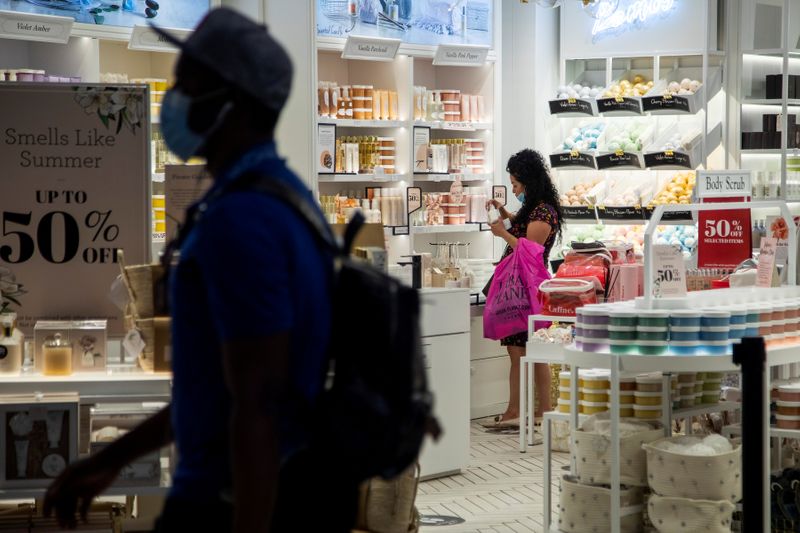By David Ljunggren and Kelsey Johnson
OTTAWA (Reuters) - Canada's annual inflation rate in June posted its biggest jump in more than nine years as restrictions imposed to curb the coronavirus outbreak were lifted, Statistics Canada said on Wednesday.
The rate jumped to 0.7% from a 0.4% decline in May but was still well below the Bank of Canada's 2% target. Analysts polled by Reuters had expected the annual rate to increase to 0.3%.
"It's consistent with an economy that was almost completely shut down in many ways in April but is beginning to heal over the past few months," said Royce Mendes, senior economist at CIBC Capital Markets.
June marked the end of two months of deflation. The Bank of Canada - which says interest rates will remain near record lows for another two years - predicts inflation will remain weak in the near term.
The CPI common measure, which the central bank says is the best gauge of the economy's underperformance, edged up to 1.5% from 1.4% in May.
The main drivers of growth included recovering prices for energy, food, passenger vehicles, clothing and footwear, Statscan said.
"There is some pent up demand there. Our guess is we'll start to see some of that dissipate" as government benefits programs end, said Mark Chandler at RBC Capital Markets.
Gasoline prices declined by 15.7% compared to a 29.8% plunge in May, mainly as demand grew with the gradual reopening of businesses and public services, Statscan said.
Meat prices climbed 8.1% from June 2019. Overall, prices rose in nine of the 10 provinces.
The Canadian dollar edged up 0.2% to C$1.3429 to the U.S. dollar, or 74.47 U.S. cents.

The 1.1 percentage point advance from May to June matches the increase seen between February and March 2011.